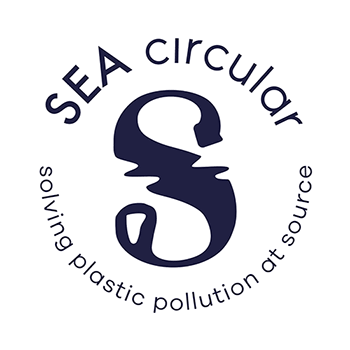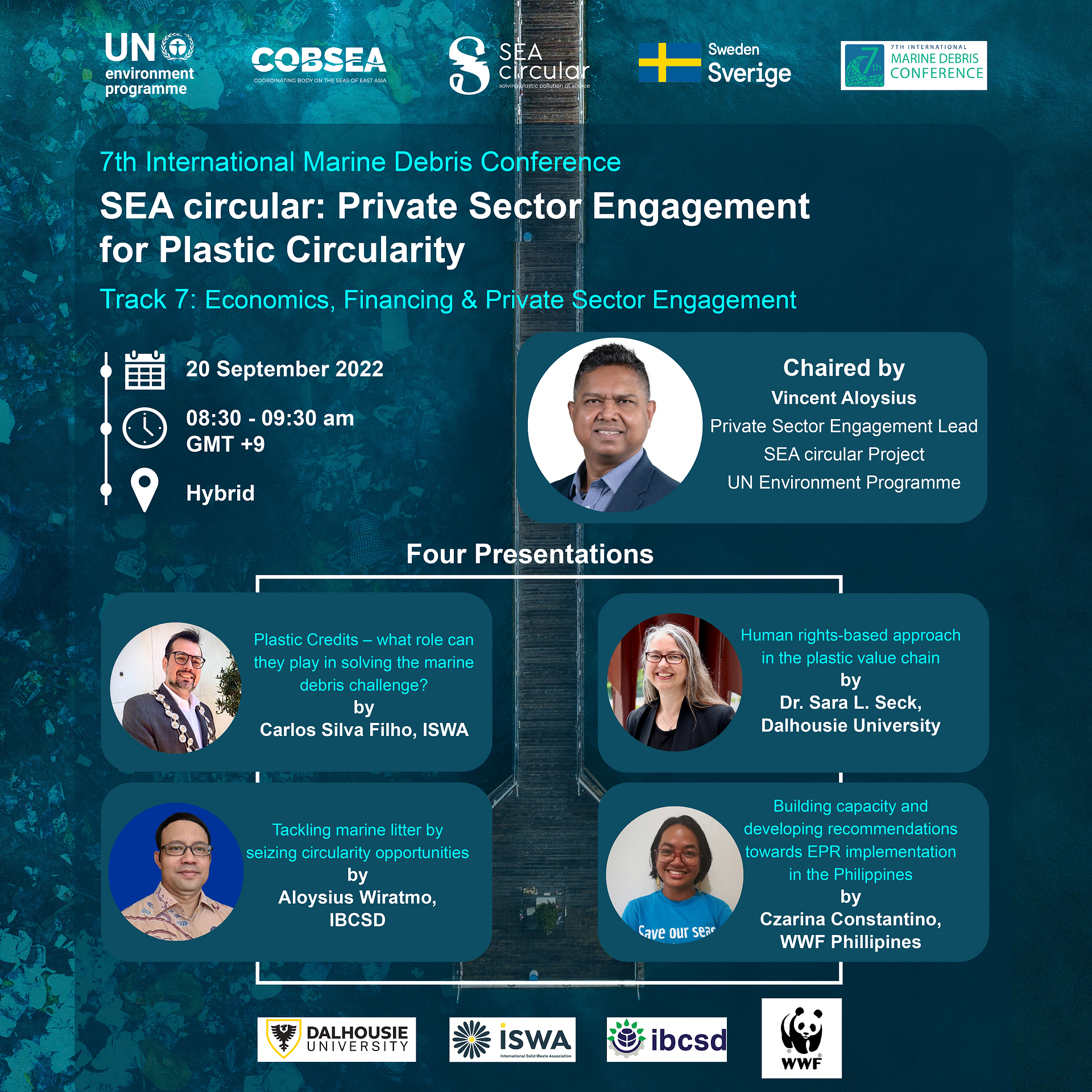
7th International Marine Debris Conference (IMDC)
Technical Session on Private Sector Engagement for Plastic Circularity
Track 7: Economics, Financing & Private Sector Engagement
Event Date: 20 September 2022, 8:30- 9.30 AM (GMT+9)
Event Location: Hybrid
Event Overview: The United Nations Environment Programme’s SEA circular project is organising a technical session at the 7th International Marine Debris Conference under track 7 – Economics, Financing & Private Sector Engagement.
The 7IMDC is building on the momentum of past IMDCs by bringing together governments, industry, academia, civil society, and all relevant stakeholders, to discuss the latest science, strengthen collaborations, find solutions and catalyze action to address the urgent, global problem of marine litter and plastic pollution.
The 7IMDC is being organized by an Executive Committee comprised of the Ministry of Oceans and Fisheries of the Republic of Korea (MOF) and the United Nations Environment Programme (UNEP), with the organizational support of the Korea Marine Environment Management Corporation (KOEM), and the technical support of U.S. National Oceanic and Atmospheric Administration (NOAA).
Private sector engagement is crucial for the shifting the needle in efforts towards plugging plastic waste leakage to prevent marine plastic pollution. The national plastic waste prevention roadmaps of countries in Southeast Asia depend on achieving more circularity in the plastic value chain. Extended producer responsibility (EPR) is recognized as one of the key pathways in achieving circularity. To this end, engaging with the private sector to encourage collaboration between actors in the plastic value chain is a key factor for success.
In this session, we wish to highlight the cross-cutting projects supported by SEA circular, projects encouraging collaboration between the private sector, producer responsibility organizations, government agencies, and civil societies to support the enablement of EPR with the right policies to support private sector in meeting their EPR responsibilities as well as to encourage innovative business models that can lead to circularity. These projects develop and apply knowledge assets covering the emerging plastic credit mechanism as well as linkages to help sensitize and raise awareness on human rights and gender related matters particularly when depending on plastic waste collection, sorting and management services provided by the informal sector.
This session aims to present practical experiences and lessons learned by project implementing partners of SEA circular. It will also showcase the development and progress of producer responsibility organizations, recommendations from research and analysis on the evolving plastic credit scheme landscape, and technical recommendations from multi-stakeholder teams within the projects focusing on the enablement of policies.
The session aims to provide knowledge and experience sharing by the implementing partners of SEA circular Project. It is hoped that knowledge and experience gained from the private sector engagements in enabling EPR and circularity will benefit project developers from the lessons learned, insights gained and recommendations proposed. We are hopeful that these projects can contribute to successful future projects to make further progress on preventing marine plastic pollution.”
Objectives:
- Share learnings, knowledge and the successes in addressing the plastic pollution crisis through initiatives involving private sector engagement and market-based solutions in South-East Asia.
Expected Outcomes:
- Participants take the learnings from the communication, knowledge sharing and research initiatives to develop meaningful interventions contributing to reduction in plastic pollution.
- Gain insights on the multipronged nature of the plastic pollution challenge and therefore the need for multifaceted solutions with awareness and communication at the center of it.
| Time | Title |
|---|---|
| 8:30 – 8:38 am | Opening Session |
| 8:38 – 8:48 am | Presentation on Plastic Credits – what role can they play in solving the marine debris challenge? |
| 8:48 – 8:58 am | Presentation on Human rights-based approach in the plastic value chain |
| 8:58 – 9:08 am | Presentation on Tackling marine litter by seizing circularity opportunities |
| 9:08 – 9:18 am | Presentation on Building capacity and developing recommendations towards EPR implementation in the Philippines |
| 9:18 – 9:28 am | Question and Answer |
| 9:28– 9.30 am | Closing and way forward |
Events


